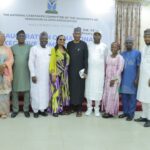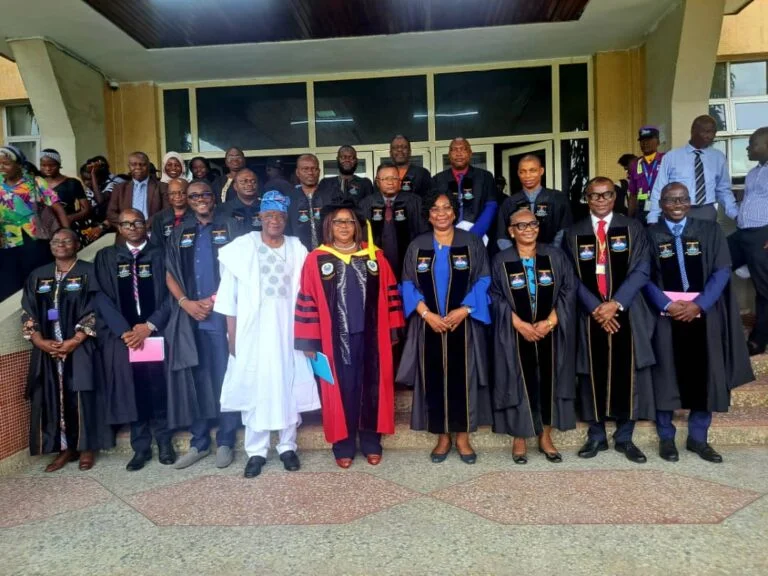By Henry Oladele
Every 16 minutes, a teacher in a particular classroom commits not just grammatical errors but verb group-related errors, a professor of English Grammar and Applied English Linguistics, has said.
Prof. Roseline Adejare of the Department of Language, Arts and Social Science Education, Lagos State University (LASU), said this after delivering LASU’s 107th Inaugural Lecture at the Ojo Campus of the institution.
The News Agency of Nigeria (NAN) reports that the lecture had the topic: ‘‘Is, Was, Choose One: Exploration into the World of the English Verb and Other Aspects of English Grammar”.
NAN reports that verb group-related errors involve mistakes with verb tenses, subject-verb agreement, and the use of auxiliary verbs.
Adejare said: “The standard is getting lower, and there is a reason for it.
“We do not teach grammar any longer, and there are no qualified people to teach grammar because nobody studies grammar.
“In the study that I have conducted, I tried to establish a link between teachers’ competence in the language of instruction and standard of education.”
According to the professor, verb is central to the clause and central to meaning realisation.
“If you don’t know the verb, you don’t know the language.
“Teachers are not adequate, those teaching them in the university, when they go for research, they go and do social and discourse analysis.
“They leave grammar out because they think it is difficult, and when you don’t know the grammar of a language, you don’t know that grammar in that language.”
She said there was need for the review of English Language programmes in tertiary institutions to embrace more descriptive grammar courses aimed at ensuring better equipment of teachers.
“It is important that linguists begin to focus on grammatical research because grammar is fundamental to language.
“Since acquisition of adequate grammatical knowledge is a condition for effective communication, the Bachelor of Arts English programme should be reviewed.
“This is to embrace more descriptive grammar courses,” Adejare said.
She also urged that departments of English Language with excellent grammar programmes should train competent personnel to handle them.
“These will ensure that English Language teachers are better equipped, English curriculum planners are adequately exposed, and the English course book, which teachers and pupils so heavily rely on, are free of fundamental errors,” she said.
In her lecture, Adejare defined language as a human vocal noise used systematically and conventionally by a community for the purpose of communication.
“This shows that language is convention, and both spoken and written.”
Adejare said that the use of English Language in Nigeria was fraught with difficulty.
“This makes utterances like: It is, it are, it was… choose one’, possible and which makes accurate description imperative,” she said.
The professor urged that Language Acquisition and Development should be made compulsory.
“The requirement that doctoral students mandatorily register and pass eight units of courses in the cognate department to upgrade their knowledge of the language is unquestionable.
“However, English Education students routinely avoid grammar and phonology because of their perceived difficulty; consequently, they end up ill-equipped.
“This should be addressed,” she said.
She added that students should be mandated to undertake qualitative research.
The Vice-Chancellor of LASU, Prof. Ibiyemi Olatunji-Bello, and other management staff of the university were at the inaugural lecture. (NAN)(www.nannews.ng)
Edited by Ijeoma Popoola












